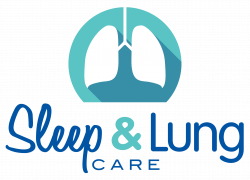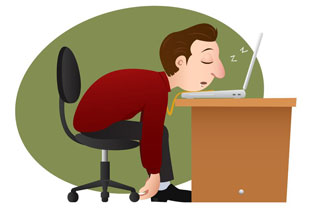Daytime Sleepiness
What is daytime sleepiness?
Daytime sleepiness is feeling sleepy during the daylight hours, when most people are awake and alert.
What causes daytime sleepiness?
Daytime sleepiness can be caused by:
- Not having good sleep habits – For example, not having enough time to sleep at night or not having a regular sleep schedule.
- A sleep disorder, such as:
- Sleep apnea – People with this condition stop breathing for short periods during sleep.
- Narcolepsy – People with this condition are very sleepy in the daytime and sometimes fall asleep suddenly during normal activities.
- Insomnia – People with this condition have trouble falling or staying asleep.
- Things that disturb your sleep, such as:
- Sounds – For example, if you have a new baby, he or she might cry and wake you up at night.
- Health conditions, such as restless legs syndrome or nighttime leg cramps.
- Schedule changes that affect sleep – This might include working a night shift or traveling to another time zone.
- Medicines – Certain medicines can cause daytime sleepiness.
Is there anything I can do on my own to feel better?
That depends on the cause of your daytime sleepiness. But you can try having good sleep habits. This means that you:
- Go to bed and get up at the same time every day.
- Have drinks with caffeine in them only in the morning (these include coffee and tea).
- Avoid alcohol.
- Avoid smoking, especially in the evening.
- Lose weight if you are overweight.
- Exercise several days a week, but not right before bed.
- Stay off your back when sleeping. (This is not always possible and does not always work.)
- Avoid looking at a phone or reading device (“e-book”) that gives off light before bed. This can make it harder to fall asleep.
Should I see a doctor?
See a doctor if:
- You are often very sleepy in the daytime.
- You fall asleep in the middle of normal activities.
- You fall asleep in a dangerous situation, such as while driving.
- You see or hear things that are not really there.
- When you wake up, you can’t move right away.
- Your muscles feel weak if you laugh or get excited or angry.
Will I need tests?
Your doctor will decide which tests you should have. There are many different tests, but you might not need any. It depends on your age, other symptoms, and individual situation.
A “sleep study” is the most common test doctors use to find the cause of daytime sleepiness. For this test, you spend the night in a sleep lab at a hospital or doctor’s office. You are hooked up to different machines that monitor your heart rate, breathing, and other body functions. The results of the test tell your doctor or nurse if you have a sleep disorder.
Your doctor might also ask you to keep a daily log for 1 to 2 weeks, where you keep track of how you sleep each night.
How is daytime sleepiness treated?
That depends on what is causing your daytime sleepiness. Treatments can include:
- Lifestyle changes – These can include changing your work schedule, taking naps, losing weight, or avoiding caffeine and alcohol.
- Devices you wear at night – These can help people with sleep apnea.
- Medicines – These can help you stay awake in the daytime or sleep better at night.
- Surgery – A few people with sleep apnea have surgery to treat it. But most people don’t need surgery for daytime sleepiness.
Can daytime sleepiness be prevented?
— You can reduce your chances of daytime sleepiness by having good sleep habits. If your doctor or nurse prescribes medicine or a device to wear, use it exactly how he or she tells you.

